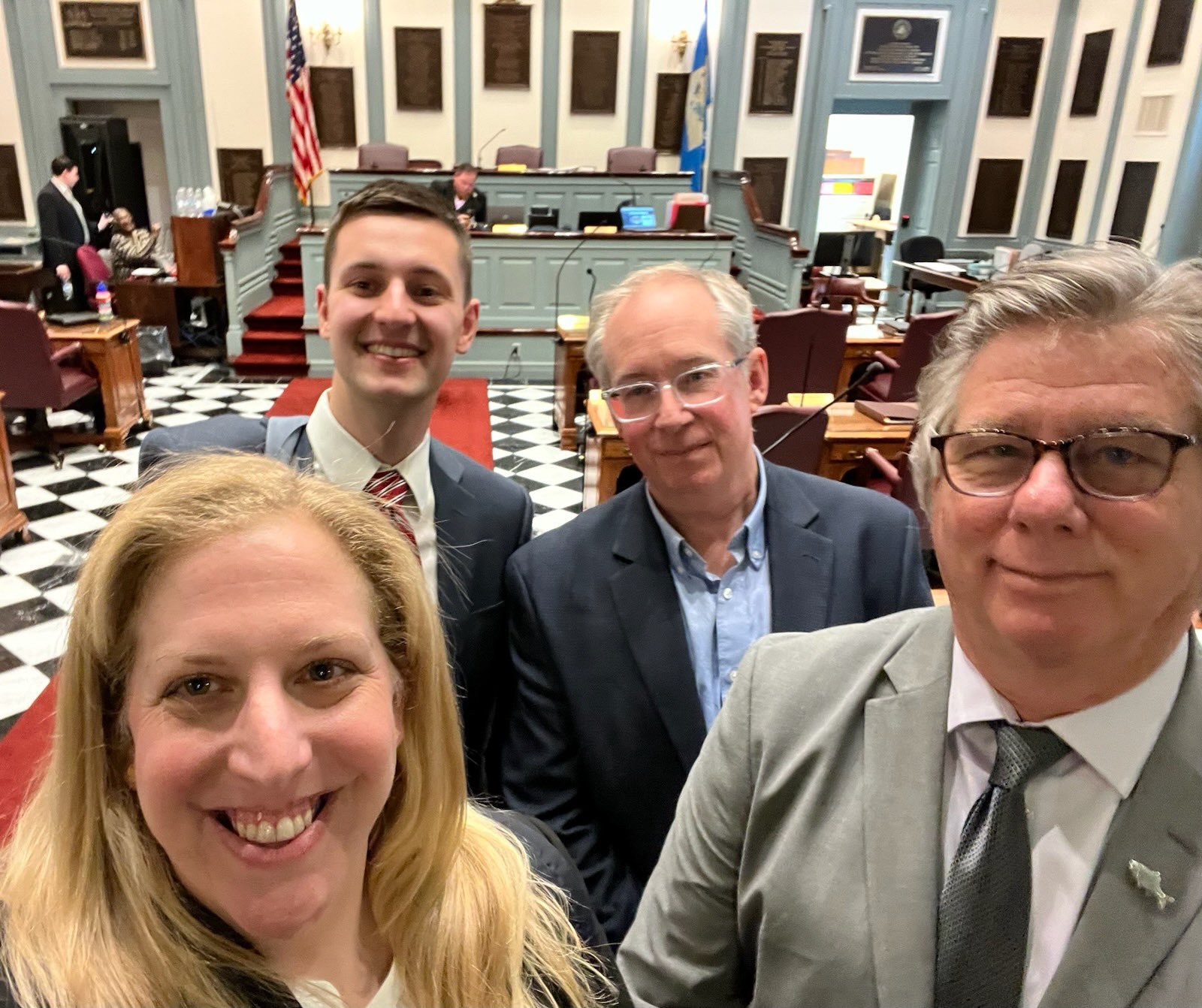Authored by Robin Glazer, Environmental Advocate at the Delaware Nature Society & Delaware State Lead
When you think of the State of Delaware, water doesn’t naturally come to the top of mind. Delaware can lay claim to having twice as many chickens as people and keeping license plates as family heirlooms, but water isn’t typically the first thing people think of – though it should be. When the Coalition for the Delaware River Watershed started their legislative advocacy efforts in “The First State” earlier this year, that was the number one request: remember to vote for clean water.
DE members in Dover, DE
Delaware members met with individual legislators in ten meetings over several weeks in March of 2023 – half of which were virtual, and half were in person at Dover’s Legislative Hall. Like other states in the Coalition, Delaware has established annual priorities that members work to achieve. To that end, High Garst (CDRW State Policy Advocate) and Robin Glazer (Delaware Nature Society, Delaware State Lead) developed four asks when meeting with state legislators:
Support legislation that would address styrofoam pollution
Support legislation that would recognize the cumulative impacts of pollution when permitting projects in underserved communities
Address the emerging threat of forever chemicals in state waters
Ensure the Clean Water Trust Fund is restored
For each of the talking points, members examined recent successful bills and related policies. For styrofoam pollution, members recalled the passage of the plastic bag ban and its palpable positive effect on Delaware’s waterways. Furthermore, there is a variety of cost-efficient and readily available alternatives to styrofoam, thanks in part to Delaware’s neighboring states’ styrofoam bans as well as technological advances in corn, soy, and (recyclable) plastic-based products. Forever chemicals, or PFAS (per- and poly-fluoroalkyl substances), abatement had similarly inherent support. A Concurrent Resolution recently passed in Delaware will develop a program for the disposal of foams used by firefighting schools and obtain safe, viable alternatives, which marks one of the first major steps towards addressing PFAS statewide. When considering that water, food, and clothing can contain these harmful chemicals, one representative remarked,
“There seems to be so much to learn about PFAS, and it’s all terrifying. Once you know even a little, it must be your responsibility to tell others and do something about it. It’s the right thing to do.”
Asking for Clean Water Trust maintenance and cumulative impacts legislation support was less tangible, as the requests were for scrutiny rather than immediate action. The Clean Water Trust was created by the Clean Water for Delaware Act, providing $50 million to much-needed water infrastructure needs throughout the state.
DE Members at DuPont Environmental Education Center, Wilmington, DE
Following a successful day of meetings in Dover, members gathered at DuPont Environmental Education Center. outside of Wilmington, DE to celebrate successful unified advocacy in the state and to look forward to the coming CDRW Forum, which will occur just upriver from the education center. The DuPont Environmental Education Center is managed by CDRW member, Delaware Nature Society, and members were able to tour the facility and surrounding habitat with expert staff, connect with fellow advocates in Delaware, and learn more about CDRW’s collaborative work!
Whether we are advocating for clean water and environmental justice, or meeting up to connect and network, the Coalition will continue to work with members to highlight Delaware’s water successes; right next to its Blue Hens and historic license plates.


